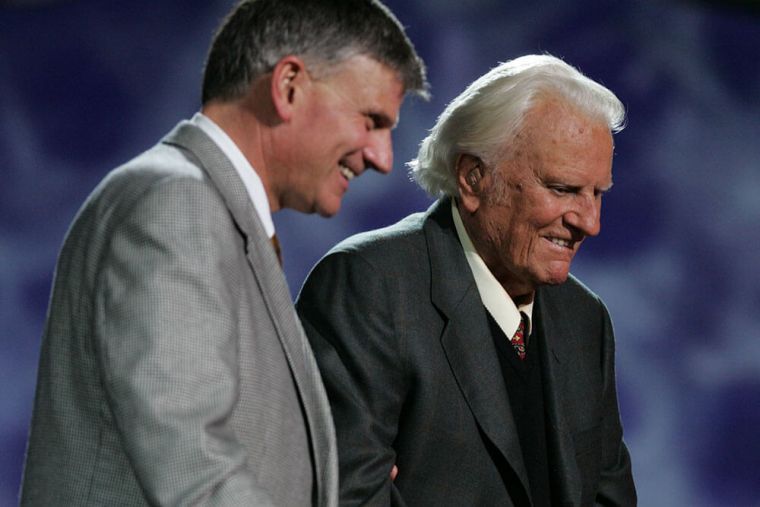Billy Graham: 5 ways Christians can cope with the 'violence and destruction' all around

Such is the sense of terror and helplessness gripping the world that Graham's crisis teams have stepped up to advise Christians – and anyone else of course – on how to cope.
Billy Graham rapid response teams, set up in the aftermath of 9/11, have ministered to more than 100,000 worldwide as people struggle to cope with the Islamist terror onslaught along with other crises such as fire and flood.
Billy Graham says the Bible gives us hope for a better world.
Now Graham is sending out the message of St Paul – comfort the suffering – in his first letter to the Thessalonians to the increasing numbers affected by the "violence and destruction around us".
1. Pray Deeply: "As believers, we look up. We seek out God through prayer – and trust in His sovereignty. Scripture tells us prayer is one of our most powerful resources. But how can you pray more deeply?"

In It's Time to Pray!, Graham's daughter Anne Graham Lotz breaks it down with tips on how to pray with humility, certainty, authority and clarity. "When you don't have any words, or when you feel like you're beating down God's door with the same prayer day after day, ask God's Holy Spirit to help you. The Bible tells us the Holy Spirit is an intercessor for us and cries out to God on our behalf."
2. Immerse Yourself in God's Word: When you feel as if your very soul hurts from news reports of another shooting, evil act or disaster, how do you find comfort? The Bible says: "Every word of God proves true; he is a shield to those who take refuge in him. " (Proverbs 30:5). The Rapid Response Team suggests a further 15 Bible verses to help with this.

3. Guard Your Heart. Billy Graham said: "Grief can kill a person emotionally and physically. If not counteracted with God's strength and power, our personal weakness may debilitate us." He advises on how to deal with witnessing graphic images from tragic events, often referred to as secondary trauma. "It's important to recognize how these lasting impressions can affect you, as they can be physically, emotionally and spiritually damaging," says the Rapid Response Team, whose chaplains have experience with dealing wtih secondary trauma themselves.

4. Care for Others: "It's important to guard your heart, but you can also support others experiencing secondary trauma – some who may be going through a personal crisis as well." The Rapid Response teams run a Sharing Hope in Crisis course for those who want to take this further.

5. Support Crisis Ministry: "No matter how out of control the world gets, taking action and selflessly serving others can allow God's perfect peace to fill your heart. If you feel God leading you to help people but can't be there in person, you can still share hope with others worldwide," says Graham's crisis team.












